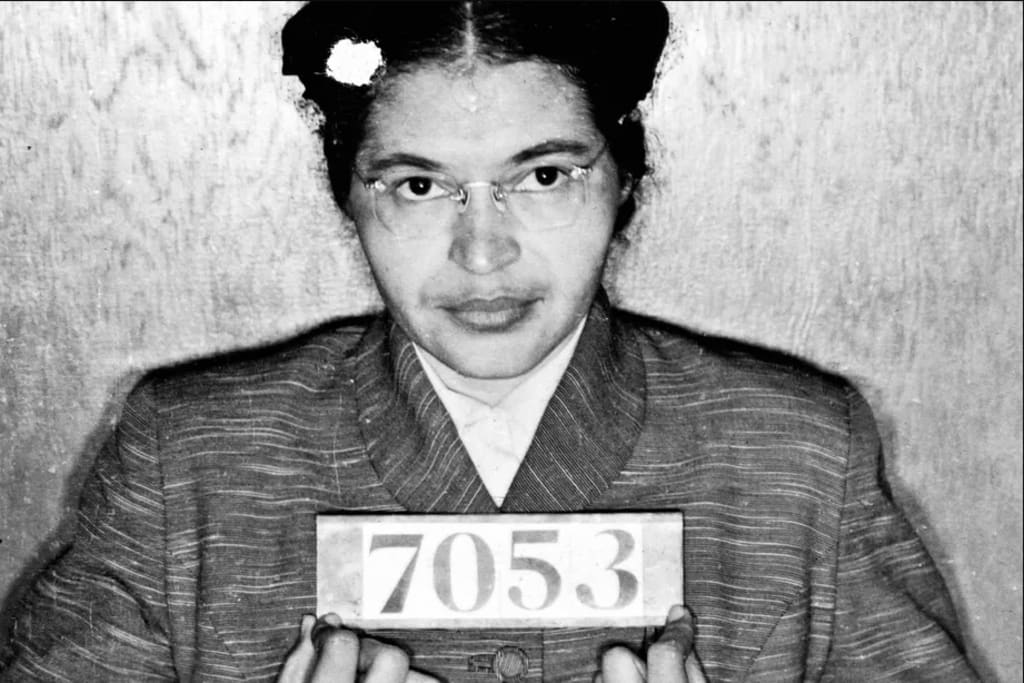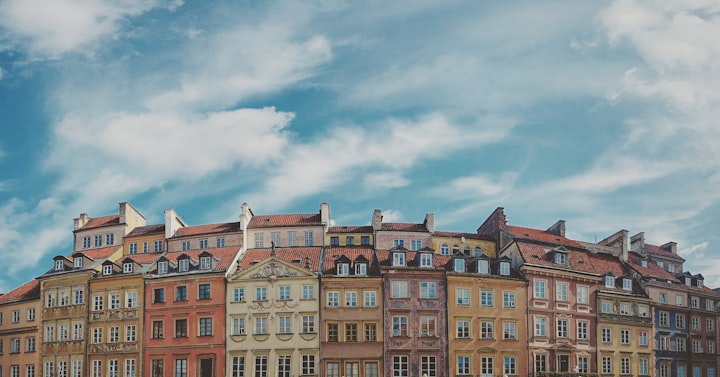32 Historical Moments from December
Memorable events from the month of December

Time for another history appreciation post! This time we're taking a look at events that took place in the month of December.
December 1, 1955 - The Rosa Parks bus incident
Rosa Parks, an African American woman, was riding a bus in Montgomery, Alabama, where they had a policy of racial segregation for the public transit system. When a white man boarded the bus, the black people were asked to move, but Rosa Parks refused to give up her seat. This lead to her arrest. Four days later, the Montgomery Bus Boycott campaign started, becoming one of the major events of the Civil Rights Movement in the US.
December 2, 1976 - Fidel Castro became president
The communist revolutionary Fidel Castro became the president of Cuba, and served until 2008. His administration turned Cuba into a socialist one-party communist state, the first in the Western Hemisphere. Cuba underwent significant economic, political, and social changes under the rule of Fidel Castro, going down in history as one of the world's strongest leaders.
December 3, 1967 - First human heart transplant
The world's first human heart transplant was performed in South Africa. The South African cardiac surgeon Dr Christiaan Barnard transplanted the heart of an accident-victim, Denise Darvall, into the chest of 54-year-old Louis Washkansky. Washkansky regained full consciousness after the surgery and was able to talk. He passed away 18 days later from pneumonia, partly caused by the anti-rejection drugs which had suppressed his immune system.
December 3, 1989 - The Cold War ended
US president George H. W. Bush and Soviet president Mikhail Gorbachev declared that the Cold War was over, after years of tension between the parts and their allies since 1947. They had been in a long-term ideological and geopolitical conflict following their temporary alliance and victory against Nazi Germany that ended the Second World War in 1945.
December 4, 1829 - Widow burning outlawed
Britain outlawed the historical Hindi practice of "suttee" or "sati" in India. The practice involves a widow burning herself to death on top of her deceased husband's funeral pyre. More legislation followed, such as acts preventing the murder of female infants, legalising remarriage for widows and raising the age of consent. Recording isolated incidents of the practice as late as in the 20th century, the Indian government put in place the Sati Prevention Act in 1987, criminalising the aiding or glorifying of sati.
December 5, 1901 - Walt Disney was born
Walter Elias Disney, the co-founder of the Walt Disney Company, was born in Chicago, United States. Facing a rocky road to success he managed to create one of the world's largest media companies, which is ever-expanding. He created the world's first feature-length animated movie, which received enormous amounts of praise. Disney holds the record for the most Academy Awards earned by an individual film producer, having won 22 Oscars out of his 59 nominations.
December 6, 2006 - Discovery of water on Mars
In the exploration of Mars, the question whether the planet has water has been significant. On 6 December, 2006 NASA revealed photos taken by Mars Global Surveyor that suggested the presence of liquid water on Mars. Due to the thin atmosphere of Mars and the cold temperature, water would either evaporate or freeze on the surface, but now there was finally evidence that water could exist on Mars.
December 7, 1941 - Pearl Harbor
In an intention to destroy American fleets, preventing them from interfering with Japan's conquest of Southeast Asia, the Imperial Japanese navy attacked the Pearl Harbor Naval Base in Hawaii. The attack killed 2403 people, and resulted in the US entering the Second World War.
December 8, 2004 - Cusco Declaration
On this day, the Cusco declaration was signed in Cusco, Peru, establishing the Union of South American Nations. It was signed by twelve South American countries, and called for a regional government, a common currency and a common market.
December 9, 1992 - Operation Restore Hope
US Marines land in Somalia, initiating Operation Restore Hope. The goal with the operation was to create a protected environment in the southern half of the country so that humanitarian operations could be conducted. The operation was deemed a success as the delivery of food and other humanitarian aid was able to be carried out.
December 10, 1964 - Nobel Peace Prize for MLK
Dr Martin Luther King, Jr. was awarded the Nobel Peace Prize for his leadership of the Civil Rights Movement and commitment to achieving racial justice through nonviolent action. He gave an inspiring speech at the ceremony, calling for support on the long road ahead to end racial injustice.
December 11, 1997 - The Kyoto Protocol
Delegates representing 150 industrial nations attended a UN climate conference in Kyoto, Japan. They reached an agreement to control heat-trapping greenhouse gases.
December 12, 2015 - COP21 in Paris
World leaders agreed to a deal between 195 countries to secure a sustainable future, agreeing to limit the rise in the global average temperature to less than 2°C.
December 13, 1920 - The Hague was established
The League of Nations established the International Court of Justice in The Hague. It settles disputes between states and gives advice on international legal issues.
December 14, 1911 - South Pole reached by man
On this day, the Norwegian explorer Roald Amundsen became the first ever to reach the South Pole. He arrived with four others, after first leaving for their Arctic base in June of 1910, and then setting out for the South Pole in October 1911.
December 15, 1973 - Homosexuality not a mental illness
The American Psychiatric Association removed homosexuality from their list of mental illnesses, declaring they would no longer insist on a label of sickness for them. They stated that homosexuality didn't meet the criteria for being a psychiatric disorder, which was a huge step forward for the community.
December 16, 1773 - Boston Tea Party
The Boston Tea Party was a protest by the Sons of Liberty, where they threw an entire shipment of tea from the British East India Company into the harbour water in Boston, Massachusetts. This was an important incident in the growth of the American Revolution.
December 17, 1903 - First motorised aircraft flight
The Wright brothers made the first sustained motorised aircraft flight at Kitty Hawk, North Carolina. The flight took place at 10:35 AM, and was piloted by Orville Wright.
December 18, 1892 - "The Nutcracker" premiered
Peter Ilyich Tchaikovsky's ballet "The Nutcracker" premiered in Saint Petersburg, Russia, and has now become the world's most performed ballet.
December 19, 1958 - First radio broadcast from space
The world's first radio broadcast was sent from space, which was US President Dwight D. Eisenhower's Christmas message: "to all mankind, America's wish for peace on Earth and goodwill to men everywhere".
December 20, 1812 - "Grimm's Fairy Tales" published
The fairy tale collection "Grimm's Fairy Tales" by Jacob Grimm and Wilhelm Grimm was first published in Germany. The collection included stories such as Hansel and Gretel, Cinderella and Little Red Riding Hood.
December 21, 1937 - First animated feature film
The world's first full-length animated feature film, Walt Disney's first classic, "Snow White and the Seven Dwarfs" premiered at the Carthay Circle Theatre in Los Angeles.
December 22, 1885 - Japan's first prime minister
Samurai and politician Itō Hirobumi became the first prime minister of Japan. He served four terms as prime minister.
December 23, 1954 - First human kidney transplant
Dr. Joseph E. Murray performed the first human kidney transplant at Peter Bent Brigham Hospital in Boston, Massachusetts. The surgery was performed on identical twins, and the recipient died eight years later. Dr. Murray received the Nobel Prize for Medicine in 1990.
December 24, 1814 - Treaty of Ghent
The Treaty of Ghent was signed, ending the war of 1812 between the United Kingdom, the United States and their allies. It took effect in February 1815, and restored the countries' prewar borders.
December 25, 1066 - Norman conquest of England
The Norman conquest of England was completed when William the Conqueror was crowned King of England at Westminster Abbey.
December 26, 2004 - Indian Ocean tsunami
An undersea megathrust 9.3 magnitude earthquake created a massive tsunami in the Indian Ocean. It caused devastating damage and killed 230 000 people in 14 countries, going down in history as one of the deadliest natural disasters ever recorded.
December 27, 2004 - SGR 1806-20 radiation
Radiation from an explosion on the magnetar SGR 1806-20 reached Earth. It's the brightest known extrasolar event to have been witnessed.
December 28, 1922 - Stan Lee was born
Stan Lee was the creative leader of Marvel Comics for two decades, leading them to domination in the movie and comics industries. He co-created many popular fictional characters such as Spider-Man, Thor and Iron Man.
December 29, 1911 - First president of Republic of China
Sun Yat-sen was elected the first president of the Republic of China. He was also the first leader of the Kuomintang party (Nationalist Party of China). He's considered to be one of the greatest leaders of modern China, but due to the dangerous situation in the country he resigned as president in March of 1912 and went into exile.
December 30, 1924 - Discovery of other galactic systems
The American astronomer Edwin Hubble, who played a crucial role in establishing the field of extragalactic astronomy, formally announced the existence of other galactic systems at a meeting of the American Astronomical Society.
December 31, 1861 - World rain record
Cherrapunji in India, which holds two Guinness world records for rainfall, had the largest amount of rain experienced in a year, with 22 990mm in the year of 1861.
Some good, some bad and many crucial for the development of the world and society we're living in today. Let's never forget who came before us and made this possible, and continue the fight of those who made our lives easier.
----------------------------------------------------------------------------------------
If you enjoyed this article, please share it on your social media and send it to someone you think will like it too!
If you enjoyed this article and would like to support me, you can send me a tip below this story, which would be greatly appreciated.
Thank you so much for your support!
About the Creator
Tone Breistrand
Hi there! I am a Norwegian writer living in London. I like to write about love, Disney and finding happiness.






Comments
There are no comments for this story
Be the first to respond and start the conversation.